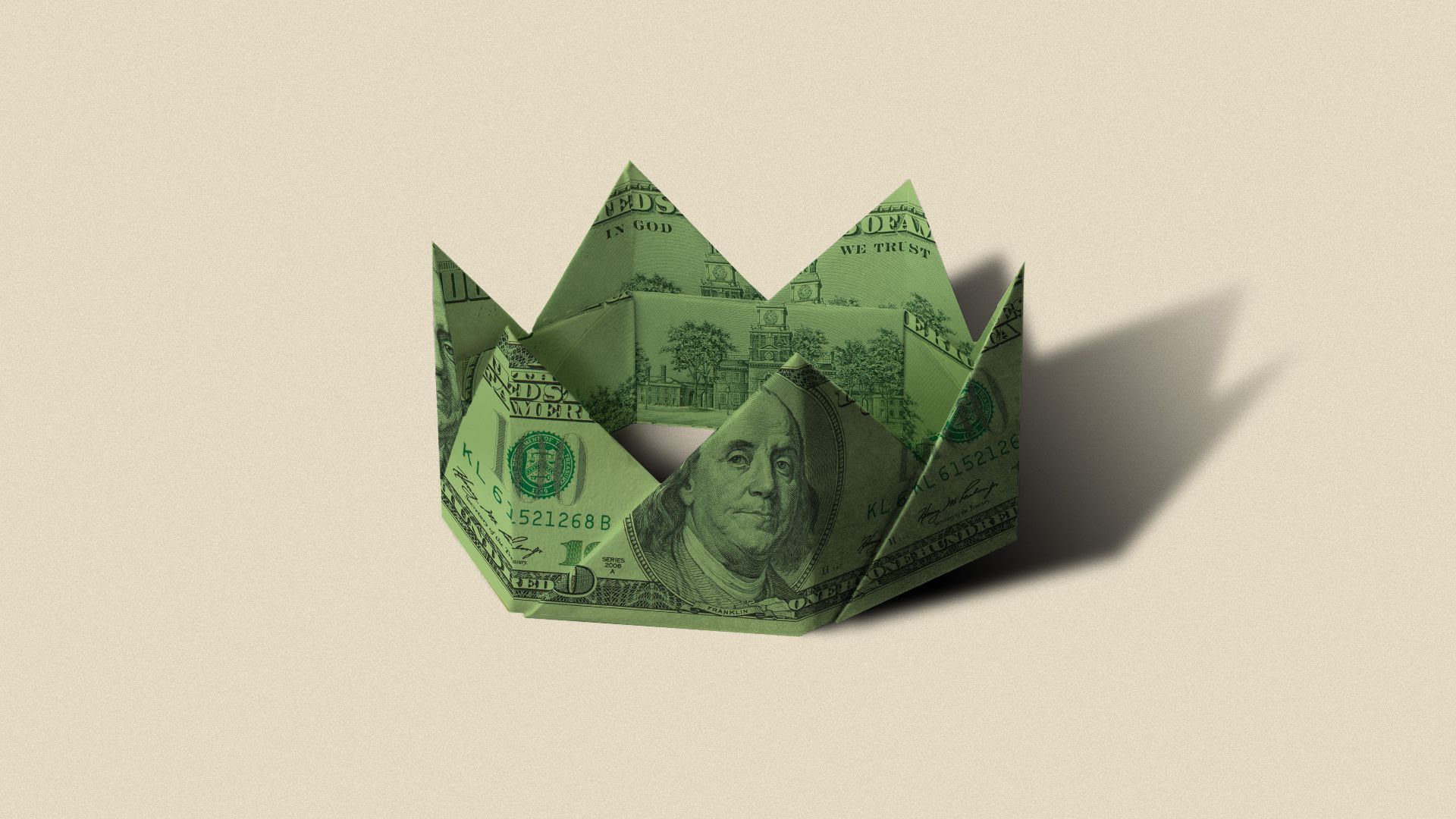Private equity returns fell behind stocks over the past decade
Add Axios as your preferred source to
see more of our stories on Google.

Illustration: Aïda Amer/Axios
U.S. private equity returns fell just below S&P 500 returns for the 10-year period ending last June, according to a report released Monday morning by Bain & Company.
Why it matters: Private equity markets itself as beating public markets over long-term time horizons, and usually providing an illiquidity premium to boot. These new performance figures not only dent such claims, but provide fresh ammunition to critics of public pension investment in private equity funds.
Specific numbers: U.S. private equity fund IRR was 15.3% for the 10-year period, versus 15.5% for the S&P 500 public market equivalent.
- "While a 15% average annual return net of fees is impressive even by private equity's own high standard, parity with public markets is not what PE investors are paying for," writes Bain.
Private equity's defense would be fourfold:
- U.S. PE returns were strong over the past decade, and top-tier funds outperformed the S&P 500.
- U.S. PE returns outperformed the S&P 500 over most other time periods.
- European private equity returns are higher than their public market comp.
- The last time we saw this sort of inversion was for the 10 years ending March 2000, and private equity easily outpaced public equity over the subsequent 10 years.
The real question is if private equity will be held accountable for the relatively lackluster results by limited partners, particularly in an era of rising progressive politics and progressively lower buyout fund returns. Not by blanket failure to support new funds, but by demanding more LP-favorable terms.
The bottom line: Private equity promises alpha. It hasn't delivered over the past decade. Expect that to be a major bone of contention this week in Berlin, where the world's largest private equity fund managers and limited partners meet for the annual Super Returns conference.
